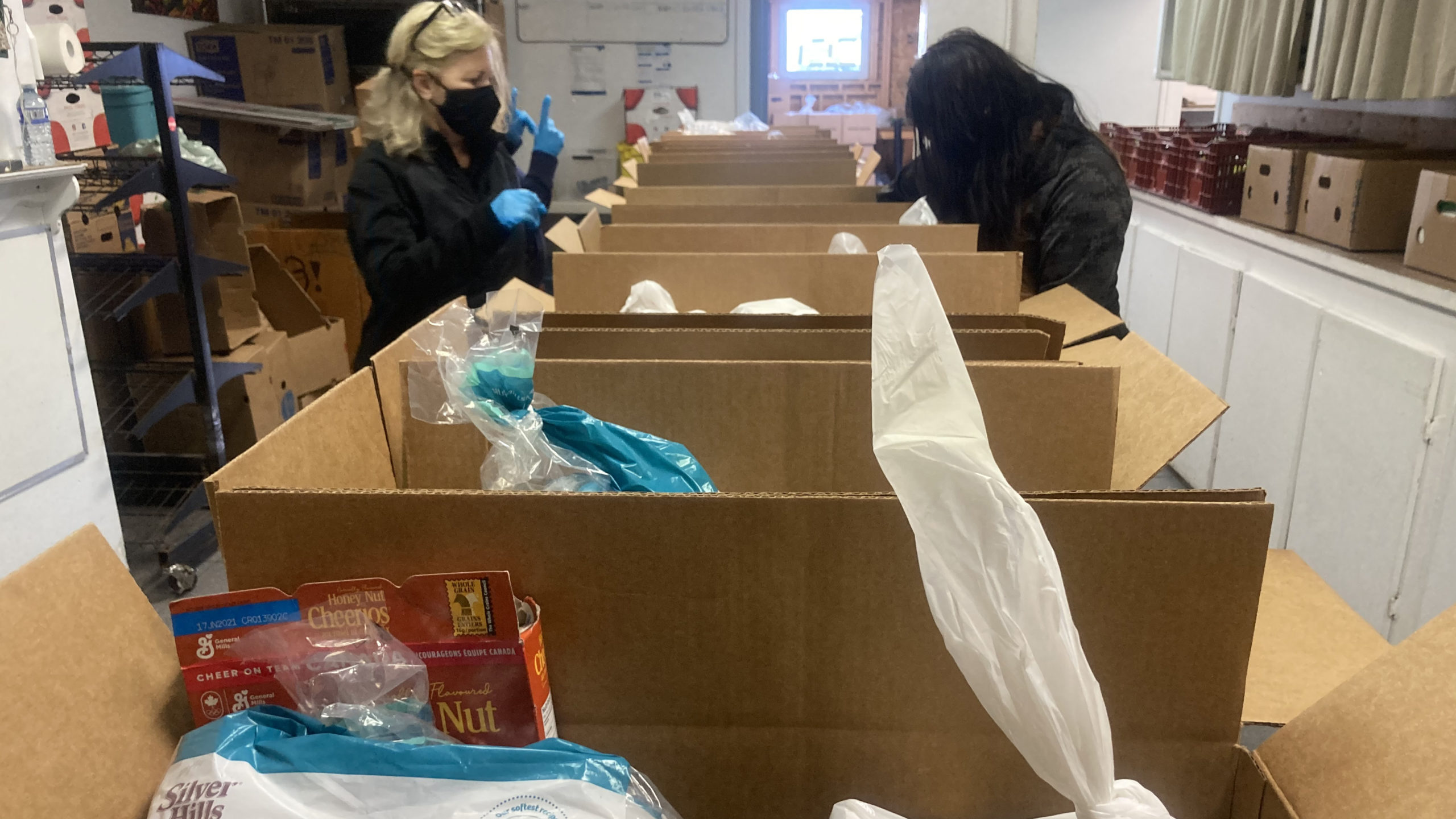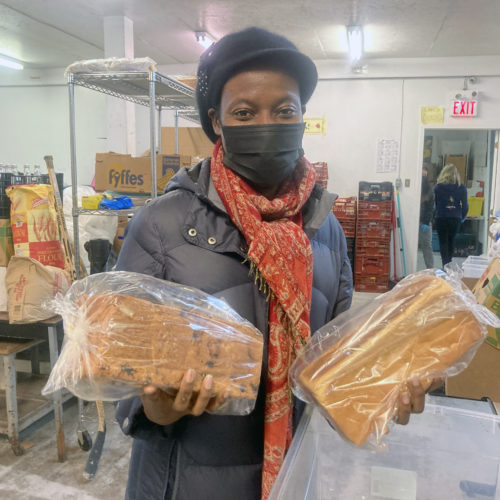Nova Scotia food banks ‘struggling’ under COVID-19
Feed Nova Scotia says it’s shipping record amounts of food since the pandemic started

caption
Volunteers pack food boxes at Parker Street Food and Furniture Bank.Food banks are under more pressure and have fewer resources heading into Nova Scotia’s first winter with COVID-19, organizers say.
Fifteen per cent of Nova Scotian households suffered from food insecurity in 2017/18, Statistics Canada reported earlier this year. Local food banks say the pandemic is increasing that demand.
Feed Nova Scotia Executive Director Nick Jennery said the charity normally delivers $1 million worth of food to 140 agencies each month. It has sustained that output while starting a new provincewide home delivery program, Jennery said.
Every week, the charity drops off 600-650 food boxes to those who need it most. Meanwhile, it has begun its annual holiday effort to provide food boxes, with all the fixings, to 7,000 households.
“It feels like you’re trying to keep plates spinning on sticks,” said Jennery. “There’s a lot of plates to keep spinning.”
Jennery estimates Feed Nova Scotia is moving roughly 40,000 pounds of food a month more than usual — this when most food banks have completely overhauled their operating systems and are managing with less help and fewer donations.
The charity has lost 150 weekly volunteers because of COVID-19, so it hired contractors on three-month terms. Jennery believes they’ll need more help if they’re going to make it through the holidays.
“There’s a lot of anxiety from the people running the food banks,” he said.
Worry and anxiety
Parker Street Food and Furniture Bank in Halifax is struggling to find volunteers. Many people who help are seniors, and some are forced to stay home because they’re immunocompromised.

caption
Cynthia Louis with Parker Street Food and Furniture Bank“I want to say we are keeping our spirits up,” said Cynthia Louis, a Parker Street spokesperson. “But you can tell there’s always a little worry there and some anxiety.”
Louis said they’re working hard to meet the needs of their clients. On top of that, Parker Street is also starting its holiday food hamper program.
In the past, they only delivered 30 per cent of the hampers. This year, they’ll try to deliver all of them. Louis believes they’ll need at least 20 more volunteers.
She is focused on larger problems, though. “This year has been challenging for operations like Parker Street, but more so for people struggling daily to meet their needs.”
No hanging out
Due to social-distancing, Parker Street is serving fewer people a day even though there’s a growing demand. Last year, Louis said they helped 80 to 90 people daily. That’s dropped to about 65.
The interactions are sped up and less friendly. For many people who use food banks, the visit is a social event, Louis said. People took a number, had coffee, and chatted with each other. Staff walked with the clients through aisles and helped them pick out what they wanted.
Now, clients wait outside and are handed a pre-packed food box. “It’s ‘Here’s your box. Have a good day. Next,’” Louis said. The humanity is gone, and “people who were already isolated are even more isolated now,” she said.

